- Home
- J. R. R. Tolkien
Beowulf: A Translation and Commentary, together with Sellic Spell Page 10
Beowulf: A Translation and Commentary, together with Sellic Spell Read online
Page 10
2025 company the thirteenth man who had wrought the beginning
of that warfare, a captive with gloomy heart he now must in
shame show the way thence over the land. Against his will he
went to where he knew a solitary hall of earth, a vault under
ground, nigh to the surges of the deep and the warring waves.
2030 All filled within was it with cunning work and golden wire.
The monstrous guardian eager and ready in battle ancient
beneath the earth kept those golden treasures – no easy bar-
gain that for any among men to win. Now upon the headland
sat the war-proven king from whom the Geats had love and
2035 gifts of gold while he bade farewell unto the companions of
his hearth. Heavy was his mood, restless hastening toward
death: the fate very nigh indeed that was to assail that aged
one, to attack the guarded soul within and sunder life from
body – not for long thereafter was the spirit of the prince in
2040 flesh entrammelled.
Beowulf spake, the son of Ecgtheow: ‘In youth from
many an onslaught of war I came back safe, from many a day
of battle. I do recall it all. Seven winters old was I, when the
king of wealth, gracious prince of peoples, received me of my
2045 father. King Hrethel it was, who guarded me and kept me
and gave me rich gift and fair feast, remembering our kinship.
No whit was I while he lived less beloved by him within his
house than any of his sons, even Herebeald, and Hæthcyn,
and Hygelac my lord. For the eldest, as never should it have
2050 been, by a kinsman’s deed the bed of cruel death was made,
when Hæthcyn with arrow from his horn-tipped bow smote
grievously his lord – he missed his mark and shot to death his
kinsman, brother slew brother with a bloody shaft. That was
an assault inexpiable, a wrong most evilly wrought, heart-
2055 wearying to the soul; and yet the prince must depart from
life all unavenged.
‘In like wise is it grievous for an old man to endure that his
son yet young should swing upon the gallows, that he should
utter a dirge, a lamentable song, while his child hangs a sport
2060 unto the raven, and he old and weighed with years cannot
devise him any aid. Ever is he reminded, each morning, of his
son’s passing; little he cares to await within his courts another
heir, now that this one hath tasted evil deeds through the violence
of death. In care and sorrow he sees in his son’s dwelling
2065 the hall of feasting, the resting places swept by the wind robbed
of laughter – the riders sleep, mighty men gone down into the
dark; there is no sound of harp, no mirth in those courts, such
as once there were. Then he goes back unto his couch, alone
for the one beloved he sings a lay of sorrow: all too wide and
2070 void did seem to him those fields and dwelling places.
‘Even so did the lord of the windloving folk bear the surging
sorrow of his heart for Herebeald – in no wise could he
exact atonement for the evil deed from the slayer of life; none
the more might he pursue with deeds of hate that warrior,
2075 though little was his love. Then beneath that sorrow that had
fallen thus too grievously upon him he forsook the joys of
men, God’s light he sought: to his heirs, as rich man doth, he
left his lands and populous towns, departing from this life.
Soon was deed of hate and strife betwixt Swede and Geat and
2080 feud on either hand across the water wide, bitter enmity in
war, since Hrethel was dead, or else the sons of Ongentheow
were bold in war, eager to advance, and desired not to keep
the peace across the sea, but about Hreosnabeorg they oft-
times wrought cruel slaughter in their hate.
2085 ‘That did my kinsmen avenge, the deeds of enmity and
wrong, as has been famed, albeit one of them paid for it with
his life in grim barter: upon Hæthcyn, lord of the Geats, war
fell disastrous. That day, as I have heard, at morn one kinsman
with the edges of his sword brought home to the slayer
2090 the other’s death, when Ongentheow met Eofer. The helm of
battle sprang asunder and the aged Scylflng fell, death-pale
in the fray. His hand remembered fell deeds enow, but it
warded not the fatal stroke.
‘Hygelac I repaid in battle for those precious gifts that he
2095 gave me, even as was permitted me, with my shining sword;
he gave me lands and the joyous possession of my fathers’
home. No need was there for him that he should seek among
the Gifethas or the spearmen of the Danes or in the Swedish
realm a warrior less doughty or hire such with pay; ever in
2100 the marching hosts I would go before him alone in the front
of war, and thus shall through life do battle, while this sword
endures that has oft, early and late, served me well, since
before the proven hosts my hands were Dæghrefn’s death,
the champion of the Franks. In no wise might he bring that
2105 fair-wrought ornament of the breast unto the Frisian king;
nay, he fell in battle, the keeper of their banner, that prince in
his pride. No sword-edge was his slayer, but a warrior’s gripe
it was that quenched his beating heart crushing his frame
of bones. Now shall this sword’s edge, hard and tempered
2110 blade, do battle for the hoard.’
Beowulf spake, for the last time proud words he uttered:
‘In youth many a deed of war I dared and still I will, aged
protector of my people, seek strife and achieve renown, if
that worker of evil and ruin comes forth from his house of
2115 earth to find me.’ Then he addressed each of those men, bold
warriors bearing their shields, his dear comrades for the latest
time. ‘I would not bear sword or weapon against the serpent,
if I knew how else I might grapple with the fierce destroyer
to mine honour, as aforetime I did with Grendel. But here
2120 do I look for fell fire’s heat, for blast and venom; wherefore I
have upon me shield and corslet. Yet I will not from the bar-
row’s keeper flee one foot’s pace, but to us twain hereafter
shall it be done at the mound’s side, even as Fate, the Portion
of each man, decrees to us. Fearless is my heart, wherefore I
2125 forbear from vaunting threat against this wingéd foe.
‘Wait now on the hill, clad in your corslets, ye knights in
harness, to see which of us two may better endure his wounds
when the combat is over. This is not an errand for you, nor
is it within the measure of any man save me alone that he
2130 should put forth his might against the fierce destroyer, doing
deeds of knighthood. I shall with my valour win the gold, or
else shall war, cruel and deadly evil, take your prince.’
Then the bold warrior stood up beside his shield, resolute
beneath his helm. Wearing his grim mail he strode up to
2135 the stony cliffs, trusting in the strength of one man alone -
such is no craven’s feat! Then he who, endowed with manly
virtue, had passed through many a host of battles and a clash
of war, when the ranks of men
smote together, saw now at
the mound’s side a stone-arch standing from whence a stream
2140 came hurrying from the hill. The boiling water of that spring
was hot with deadly fires; no man could long while endure
unscorched that deep place nigh the hoard by reason of the
dragon’s flame.
Now in his wrath the prince of the windloving Geats let
2145 words speed from his breast; grim of heart he shouted loud,
so that his voice came ringing clear as a war-cry in beneath
the hoary rock. Hatred was aroused. The Guardian of the
Hoard perceived the voice of man. No longer was there space
for the sueing of peace. Forth came first the blast of the fierce
2150 destroyer from out the rock, hot vapour threatening battle.
The earth rang. The Lord of the Geats beneath the mound
flung round his warrior’s shield to meet the dreadful comer.
Now was the heart of the coiling beast stirred to come out to
fight. His sword had already the good king drawn for battle,
2155 his ancient heirloom, quick of edge. Each with fell purpose in
their hearts knew dread of [the] other; but undaunted stood
the prince of vassals with his tall shield against him, while the
serpent swiftly coiled itself together. In his armour he awaited
it. Now it came blazing, gliding in loopéd curves, hastening
2160 to its fate. The shield well protected the life and limbs of the
king renowned a lesser while than his desire had asked, if he
were permitted to possess victory in battle, as that time, on
that first occasion of his life, for him fate decreed it not. The
Lord of the Geats flung up his arm and with his ancient sword
2165 smote the dread foe and the burnished edge turned on the
bony body, but less keenly than its king had need, thus sore
oppressed. Then was the guardian of the barrow after that
warlike stroke in fell mood; murderous fire he flung – wide
the flames of battle sprang. No triumphant cry of victory then
2170 uttered he from whom the Geats had love and gifts of gold:
his naked blade had failed him in the cruel deeds of battle, as
never should it have done, that iron tried of old. No pleasant
fare was his that day, (nor such) that the renownéd son of
Ecgtheow should of his own will forsake that field on earth;
2175 against his will must he inhabit a dwelling otherwhere, even
as each man must, leaving the brief days of life.
Not long was it now before those fierce slayers together
came again. The Guardian of the Hoard took heart afresh,
his breast heaved with gasping breath. Anguish he endured
2180 oppressed with fire who aforetime was ruler of his folk. In
no wise did his companions in arms, sons of princes, stand
about him, a company proved in war; nay, they had retreated
to a wood for the saving of their lives. In one alone of them
the heart was moved with grief. Kinship may nothing set
2185 aside in virtuous mind. Wiglaf was he called, Wihstan’s son,
that fair warrior beneath his shield, a lord of Scylfing race
of Ælfhere’s line. He saw his liege-lord beneath his vizored
helm of war in torment of heat. He remembered then those
favours which Beowulf had granted to him, the rich
2190 dwelling-place of the Wægmundings, and all the landed rights
which his father before had held. Then he could hold back
no more: his hand wielded shield of yellow linden, ancient
sword he drew – among men was it known as plunder of
Eanmund Ohthere’s son. Him, a lordless exile, did Wihstan
2195 in battle slay with edge of sword, and to Eanmund’s kin bore
off his bright burnished helm, ringéd corslet, and old gigantic
sword. All which did Onela return to him, the battle-harness
of his nephew, and gallant gear of war; nor did he speak
of the injury to his house, albeit Wihstan had laid low his
2200 brother’s son. These fair things he kept for many a year, both
sword and corslet, until his son might accomplish deeds of
knightly valour, as his father had before him. Then he gave
unto him in the land of the Geats of harness of battle an
uncounted store, when he departed life full of years upon his
2205 journey hence. This was the first venture in which that champion
young was destined to make onslaught in battle beside
his good lord. His heart turned not to water within him, nor
did the weapon his sire bequeathed betray him in the fight.
And that indeed the serpent found when they came together.
2210 Wiglaf spake many a right fitting word, saying to his
comrades (for heavy was his heart): ‘I do not forget the time
when, where we took our mead in the hall of revelry, we
vowed to our master, who gave us these precious things, that
we would repay him for that raiment of warriors, the helmets
2215 and stout swords, if ever on him such need as this should fall.
For this of his own choice he chose us amid the host, for this
adventure, considering us worthy of glorious deeds; for this
he gave to me those costly gifts, for he accounted us spear-
men valiant, bold bearers of the helm – yea, even though our
2220 lord, shepherd of his people, purposed alone on our behalf
to achieve this work of prowess, for he hath above all men
wrought feats of renown and deeds of daring. Now is the day
come when our liege-lord hath need of valour and of warriors
good. Come! Let us go to him! Let us help our leader
2225 in arms, while the heat endures, the glowing terror grim. God
knoweth that for my part far sweeter is it for me that glowing
fire should embrace my body beside the lord that gave me
gold. Nor seems it fitting to me that we bear back our shields
unto our home, unless we can first smite down the foe, and
2230 defend the life of the king of the windloving people. Verily
I know that his deserts of old were not such that he alone of
proven Geatish men should suffer anguish, and fall in battle.
With him my sword and helm, my corslet and my armour,
shall be joined in league!’
2235 Then strode he though the deadly reek, his head armed
for war, to the succour of his lord, and these brief words he
spake: ‘Beowulf beloved, do all things well unto the end, even
as thou didst vow aforetime in the days of youth that thou
wouldst not while living suffer thy honour to fall low. Now
2240 must thou, brave in deeds, thy noble heart unwavering, with
all thy might thy life defend. To the uttermost I will aid thee.’
Upon these words the serpent came on in wrath a second
time, alien creature fierce and evil, assailing with swirling
fires, drawing nigh unto his foes, these hated men. His buckler
2245 in the billowing flames was burned even to the boss, his
corslet could afford no help to that young wielder of the
spear; but beneath his kinsman’s shield stoutly fared that
warrior young, when his own was crumbled in the glow-
ing fires. Now once more the king of battles recalled his
2250 renownéd deeds, with mighty strength he smote with his
warlike sword, and fast in the head it stood
driven by fierce
hate. Nægling burst asunder! Beowulf’s sword, old, grey-
bladed, had failed him in the fight. It was not vouchsafed to
him that blades of iron might be his aid in war: too strong
2255 that hand, that as I have heard with its swing overtaxed each
sword, when he to the battle bore weapons marvellously
hard; no whit did it profit him.
Then for the third time the destroyer of the folk, the fell
fire-dragon, bethought him of deeds of enmity, and rushed
2260 upon that valiant man, now that a clear field was given him,
burning and fierce in battle. His neck with his sharp bony
teeth he seized now all about, and Beowulf was reddened
with his own life-blood; it welled forth in gushing streams.
I have heard tell that in that hour of his king’s need the
2265 good man unbowed showed forth his valour, his might and
courage, as was the manner of his kin. He heeded not those
jaws; nay, his hand was burned, as valiant he aided now his
kinsman, and smote that alien creature fierce a little lower
down – a knight in arms was he! - so that bright and golden-
2270 hilted his sword plunged in, and the fire began thereafter to
abate. Once more the king himself mastered his senses; drew
forth a deadly dagger keen and whetted for the fray, that he
wore against his mail; Lord of the windloving folk he ripped
up the serpent in the midst. They had slain their foe – valour
2275 had vanquished life; yea, together they had destroyed him,
those two princes of one house – of such sort should a man
be, a loyal liege at need! That for the king was the last of his
hours of triumph by his own deed, last of his labours in the
world.
2280 Now the wound that the dragon of the cave had wrought
on him began to burn and swell. Swiftly did he this perceive,
that in his breast within the venom seethed with deadly
malice. Then the prince went and sat him upon a seat beside
the mound, full of deep thought. He gazed upon that work of
2285 giants, marking how that everlasting vault of earth contained
within it those stony arches on their pillars fast upheld.
Then that knight surpassing good with his hands sprinkled
him with water, that king renowned all dreadly bloody,
his own liege-lord, weary of war; his helmet he unclasped.
2290 Beowulf spake – despite his hurt, his grievous mortal wound,

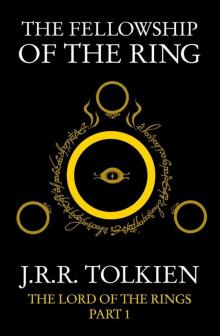 The Fellowship of the Ring
The Fellowship of the Ring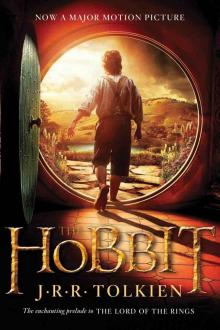 The Hobbit
The Hobbit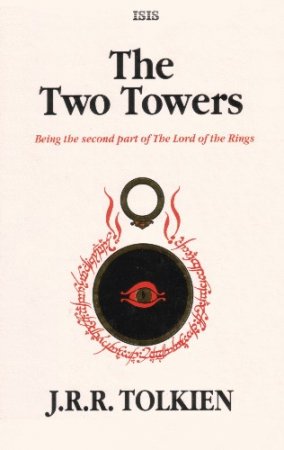 The Two Towers
The Two Towers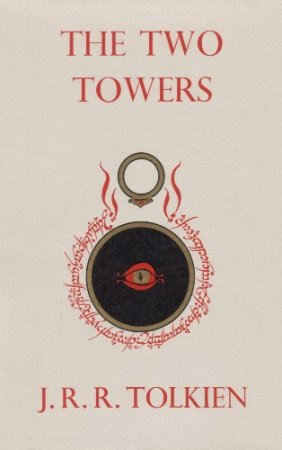 The Return of the King
The Return of the King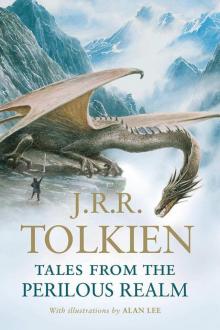 Tales From the Perilous Realm
Tales From the Perilous Realm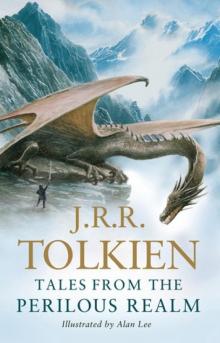 Leaf by Niggle
Leaf by Niggle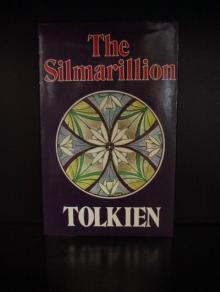 The Silmarillon
The Silmarillon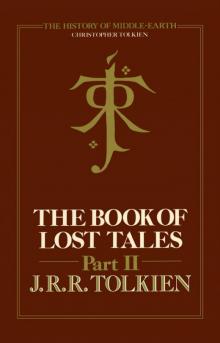 The Book of Lost Tales, Part Two
The Book of Lost Tales, Part Two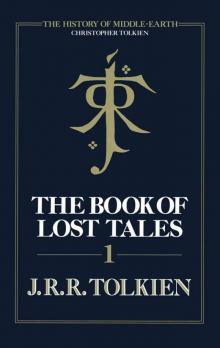 The Book of Lost Tales, Part One
The Book of Lost Tales, Part One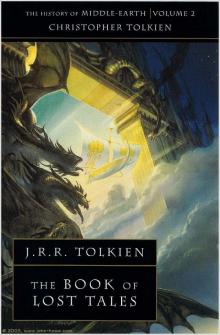 The Book of Lost Tales 2
The Book of Lost Tales 2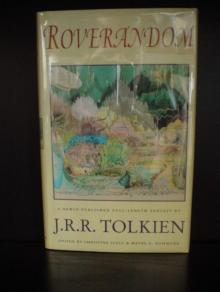 Roverandom
Roverandom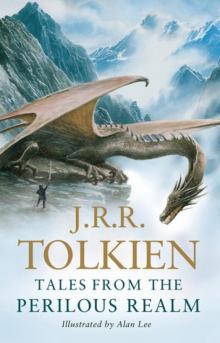 Smith of Wootton Major
Smith of Wootton Major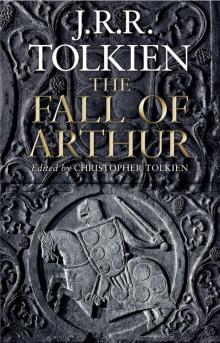 The Fall of Arthur
The Fall of Arthur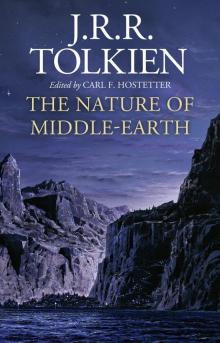 The Nature of Middle-earth
The Nature of Middle-earth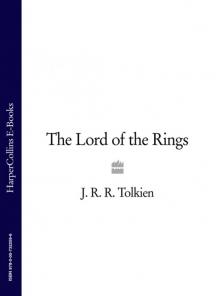 The Lord of the Rings: The Fellowship of the Ring, The Two Towers, The Return of the King
The Lord of the Rings: The Fellowship of the Ring, The Two Towers, The Return of the King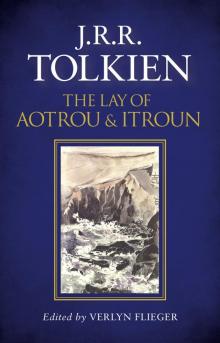 The Lay of Aotrou and Itroun
The Lay of Aotrou and Itroun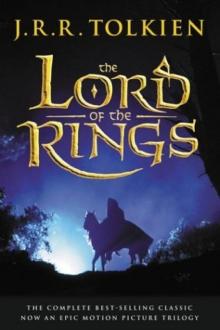 lord_rings.qxd
lord_rings.qxd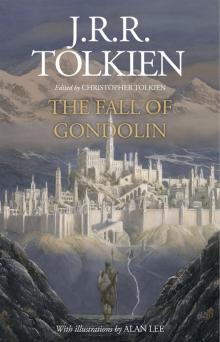 The Fall of Gondolin
The Fall of Gondolin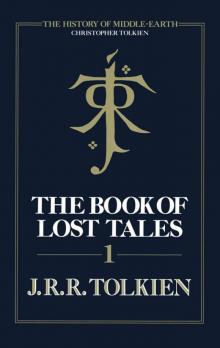 The Book of Lost Tales, Part 1
The Book of Lost Tales, Part 1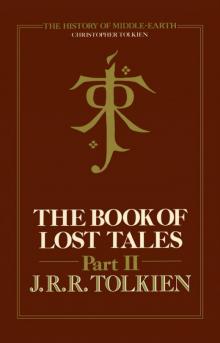 The Book of Lost Tales, Part 2
The Book of Lost Tales, Part 2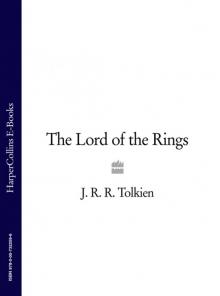 The Lord of the Rings
The Lord of the Rings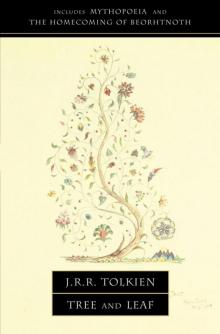 Tree and Leaf
Tree and Leaf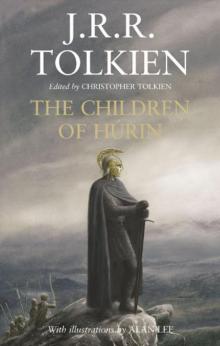 The Children of Húrin
The Children of Húrin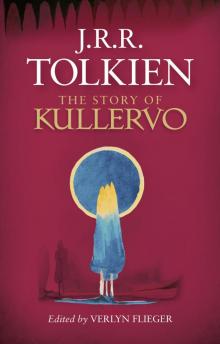 The Story of Kullervo
The Story of Kullervo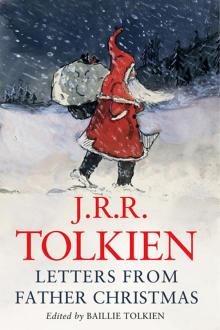 Letters From Father Christmas
Letters From Father Christmas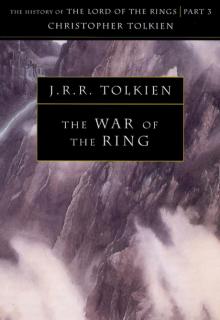 The History of Middle Earth: Volume 8 - The War of the Ring
The History of Middle Earth: Volume 8 - The War of the Ring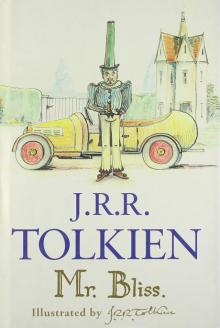 Mr. Bliss
Mr. Bliss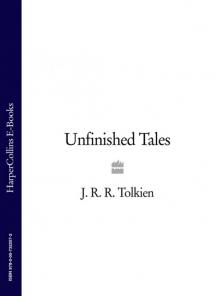 Unfinished Tales
Unfinished Tales The Adventures of Tom Bombadil
The Adventures of Tom Bombadil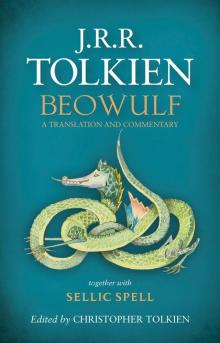 Beowulf: A Translation and Commentary, together with Sellic Spell
Beowulf: A Translation and Commentary, together with Sellic Spell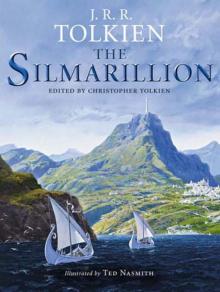 The Silmarillion
The Silmarillion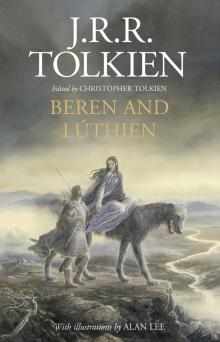 Beren and Lúthien
Beren and Lúthien